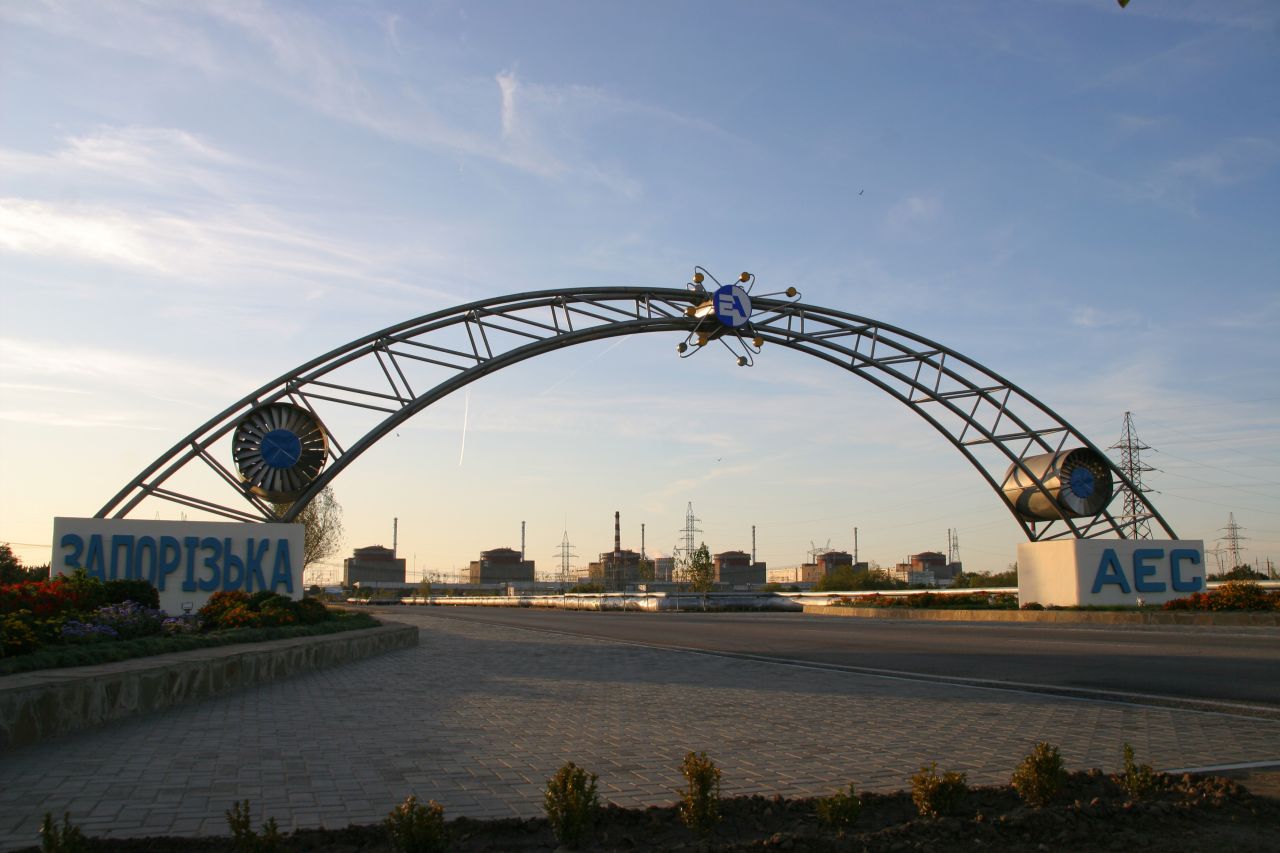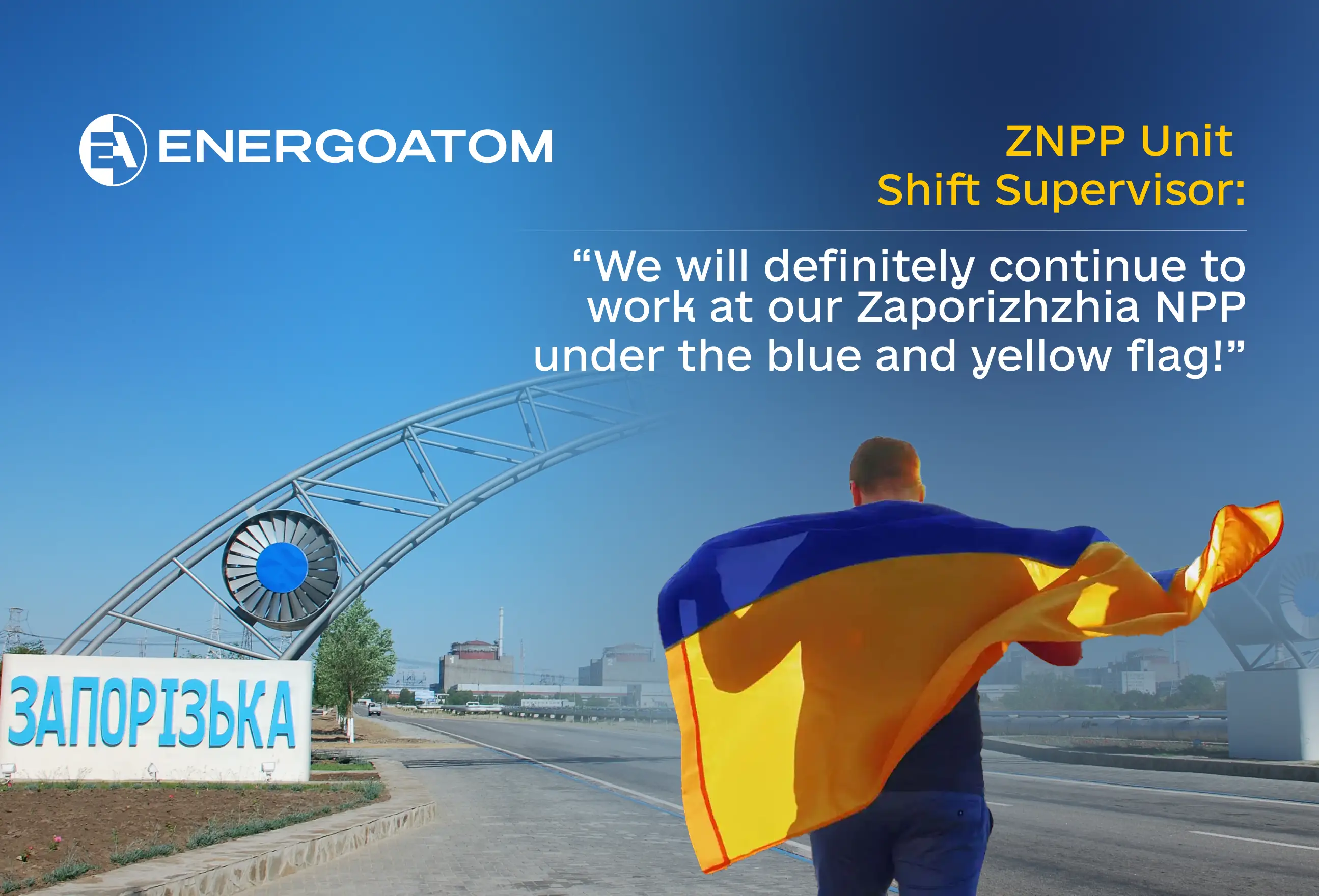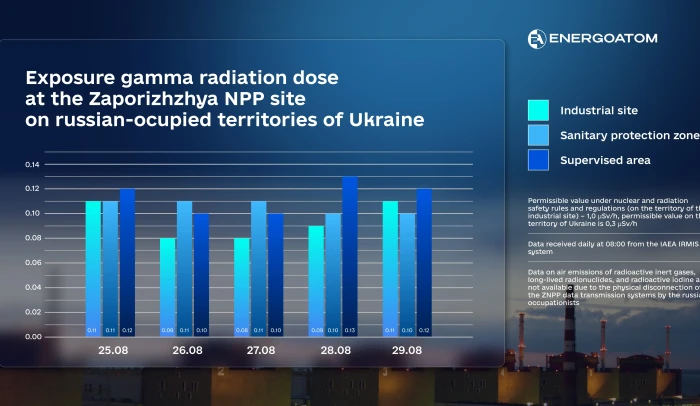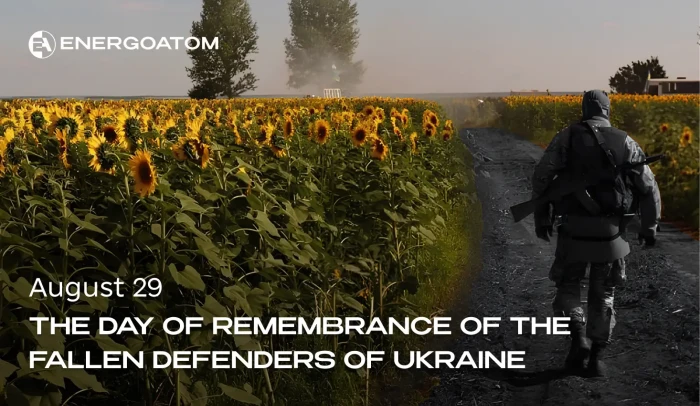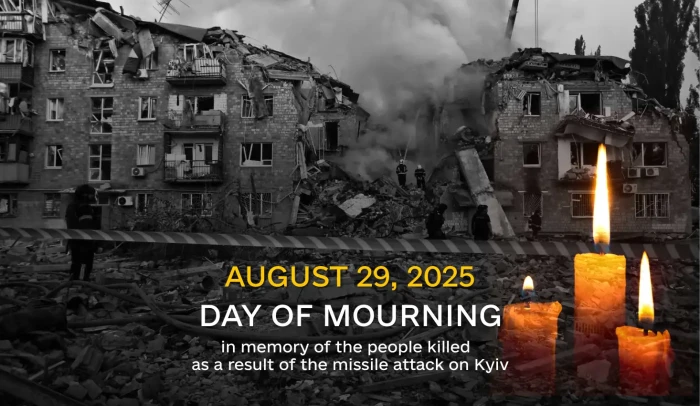For the fourth year, russian invaders have been holding the Zaporizhzhia nuclear power plant, turning Europe's largest nuclear power plant into a military base and training ground.
The Zaporizhzhia NPP and its satellite town of Enerhodar have become symbols of Ukrainian resistance to the russian invasion — both civil and professional.
At the most critical moments, Zaporizhzhia power professionals demonstrated extreme responsibility and dedication, bringing the power units into safe mode and saving the world from the threat of a nuclear disaster.
After the ZNPP occupation, the plant's employees, remaining loyal to Ukraine, went to their workplaces. Despite the risks of detention, imprisonment, abuse, and torture, they performed their professional duties – ensuring nuclear and radiation safety. Gradually, the invaders began to block the access permits of Ukrainian personnel. After February 1, 2024, none of the Ukrainian specialists who refused to sign a contract with rosatom remained at the ZNPP.
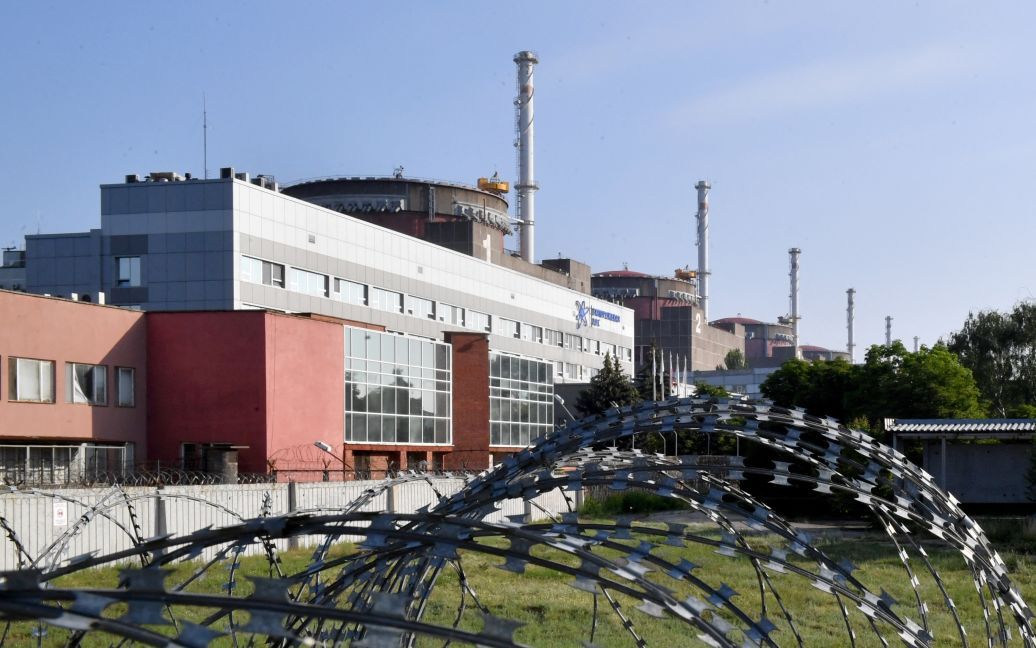
Our interlocutor is the Zaporizhzhia NPP Unit Shift Supervisor. For security reasons, his name and surname remain undisclosed. He worked at the ZNPP, captured by the ruscists, until the end of 2022. In the summer of 2023, he managed to leave Enerhodar with his family for territory controlled by Ukraine.
The interview focuses on the life and work of Zaporizhzhia power professionals under occupation, values, human and professional dignity, resilience, and fortitude.
This story echoes the experiences of many ZNPP employees who, despite intense pressure and danger, remained loyal to their profession and to Ukraine.
– Please, tell us about your career in nuclear power industry.
– After graduating from university, I joined the ZNPP operational department, where I worked for almost 20 years, gradually climbing the career ladder in operational work. At the start of the full-scale invasion, I was the Unit Shift Supervisor. From the moment the power plant was captured, I went to work until the end of 2022, then I was not allowed in, my access permit was blocked.
–What are your memories of what happened in Enerhodar and at the ZNPP in the first weeks of the full-scale war? What stands out most in your memory from those events?
– Of course, the day of the assault on the ZNPP was the most shocking event. Until the very last moment, I could not believe that the nuclear power plant would be shelled. Moreover, when it happened, I think the world's reaction should have been more decisive, but unfortunately, the international community was unable to stop nuclear terrorism. After the capture, the plant began to be guarded by “new people” who controlled the entrance and exit. Six nuclear power units and thousands of staff were in danger. Someone could come to work and go not to their shift, but to the basement (to the torture chamber). Similarly, when leaving, they would not go home, but to a “talk” with the fsb.
– March 3 and 4, 2022. Where were you when the town and the power plant were captured? If it was not your shift, what do you know about it from your colleagues who were there?
– I had the day off on the day of the capture and watched the storming of the power plant on TV. Those colleagues who were on the units did not know exactly what was happening in the town, while we, accordingly, did not know what was happening at the ZNPP. For several hours, loudspeakers blared calls to stop shelling the nuclear facility. To make it clear to the russian military what they had done, they released steam into the atmosphere, hoping that the loud noise would scare them. There was also an announcement about a radiation accident. But none of this made any impression on the occupiers. They entered the power plant, and since then, the world has been in danger.
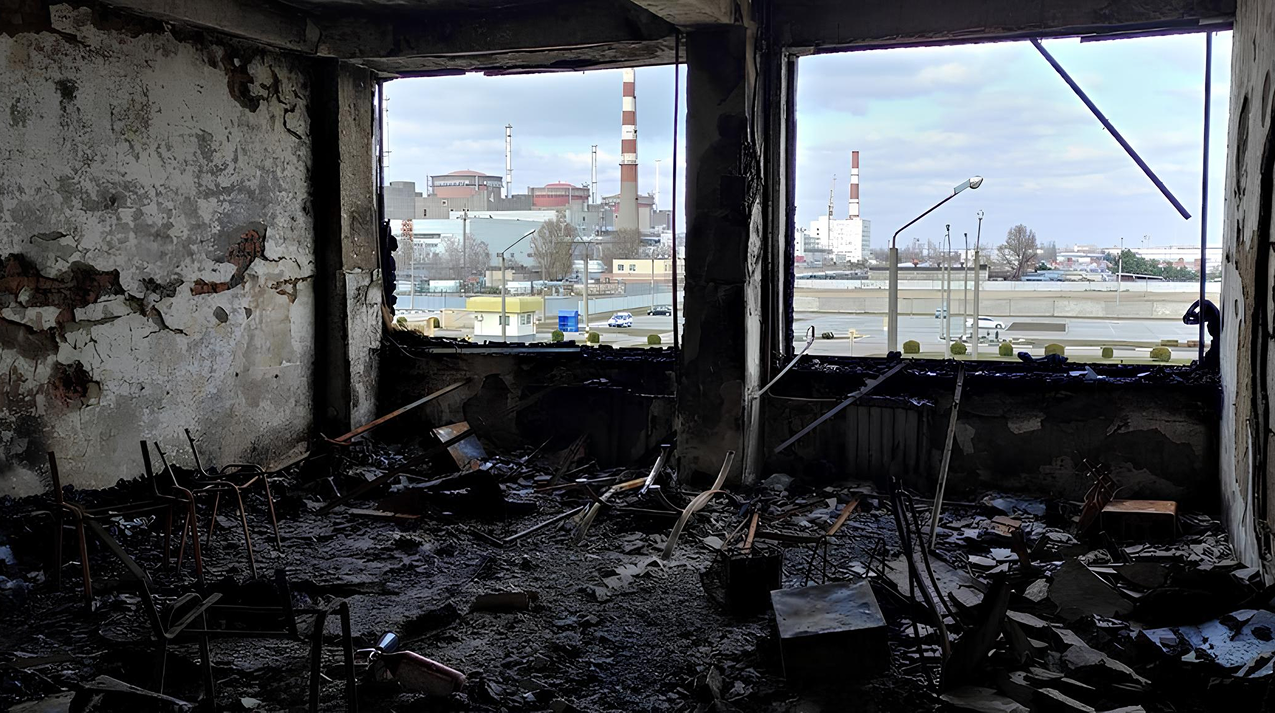
– How did the usual operational routine at the ZNPP change after the capture of the power plant by russian occupiers?
– Problems with material and technical support began immediately. In particular, it was impossible to carry out planned repairs without spare parts. Around the same time, there was a food crisis: long queues for food in the town, and empty canteens at the power plant. Despite these issues, we continued to work in shifts. As days passed, some people could not take it and left, so gradually, the issue of staff shortages arose. Over the following months, the issue became increasingly severe. Nevertheless, we managed to keep the situation under control for the most part until the so-called referendum at the end of September 2022. After that event, talks began about signing contracts with the occupiers.
– What challenges did the ZNPP operational staff face during the occupation, and how did they overcome them? After all, no document on the NPP operation describes situations where staff work at gunpoint.
From the very beginning of the occupation, understanding the realities, the operational personnel at the power plant began to prepare for possible shutdowns, blackouts, and other emergencies. At least morally, this strengthened us considerably, and when the shelling of power lines began at the end of August 2022, everyone knew what to do.
– What threats to nuclear and radiation safety have arisen at the power plant since the beginning of the occupation?
– The occupation of a nuclear facility of this scale is already a threat to nuclear and radiation safety. Mining of the territory, the location of explosive substances near oil tanks, the storage of weapons and military equipment at the NPP, the equipping of firing points, and the presence of outsiders in production facilities who live there. This list is endless.
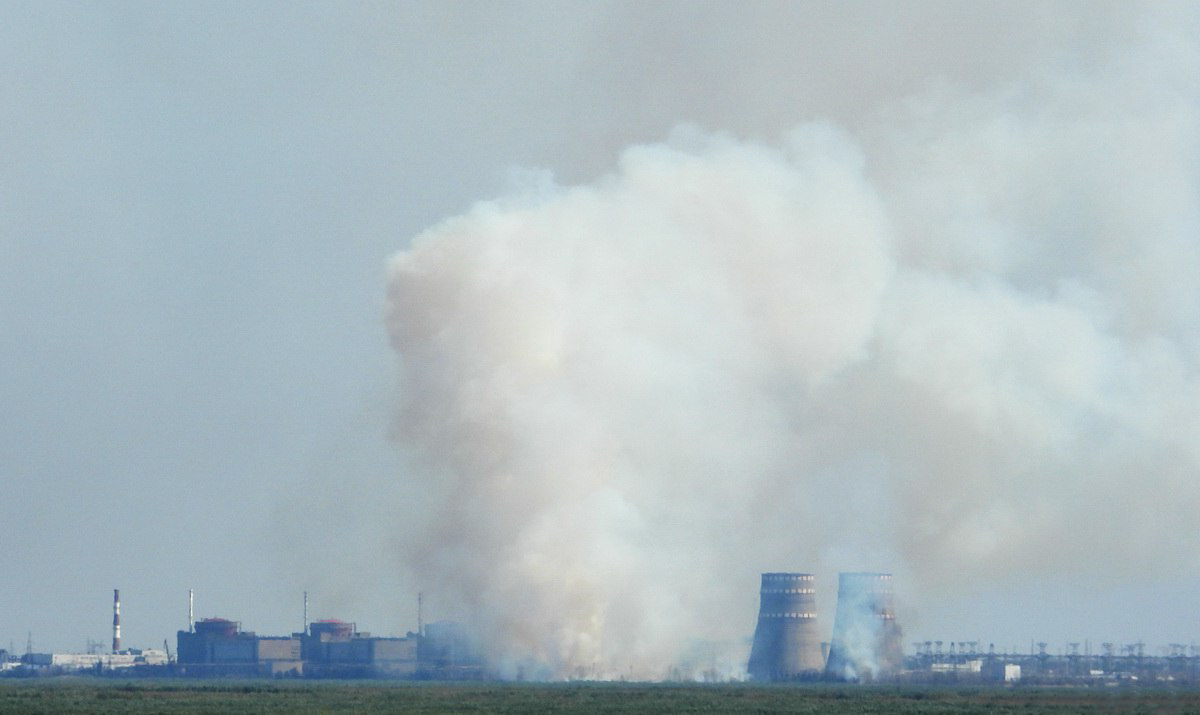
– Did you have to make any unusual decisions to maintain the stability of the NPP?
– Yes, and as I said, the operational personnel were prepared for possible emergencies. Due to this preparedness, we got through all these additional failures, complex transitional processes of abnormal modes, and power outages at the plant, which the ZNPP had never experienced before. Moreover, we got through it, in my opinion, with dignity, overcoming all challenges.
– You went to work at the occupied ZNPP until it was still possible. Together with many other plant employees who refused to cooperate with the occupiers, in particular, rosatom.
What motivated you and your colleagues (who remained loyal to Ukraine) to perform your professional duties at the plant and ensure safety despite the risks and real threats?
– Both then and now, the words of the then plant's Director General that the Zaporizhzhia NPP was part of Ukraine's energy system were crucial to me. This daily awareness was very supportive. Now, three and a half years later, the Zaporizhzhia NPP is part of Ukraine's energy system, it is ours.
Back then in Enerhodar, when the town and the plant were occupied, there was an understanding that we were still part of Ukraine. Ukrainian cell reception disappeared, russian passports began to be issued, a “referendum” was held, and russian flags were flying everywhere. The Ukrainian street names on buildings were replaced with russian ones, but we know that all this is temporary, because the plant was and is Ukrainian, and we are Ukrainians.
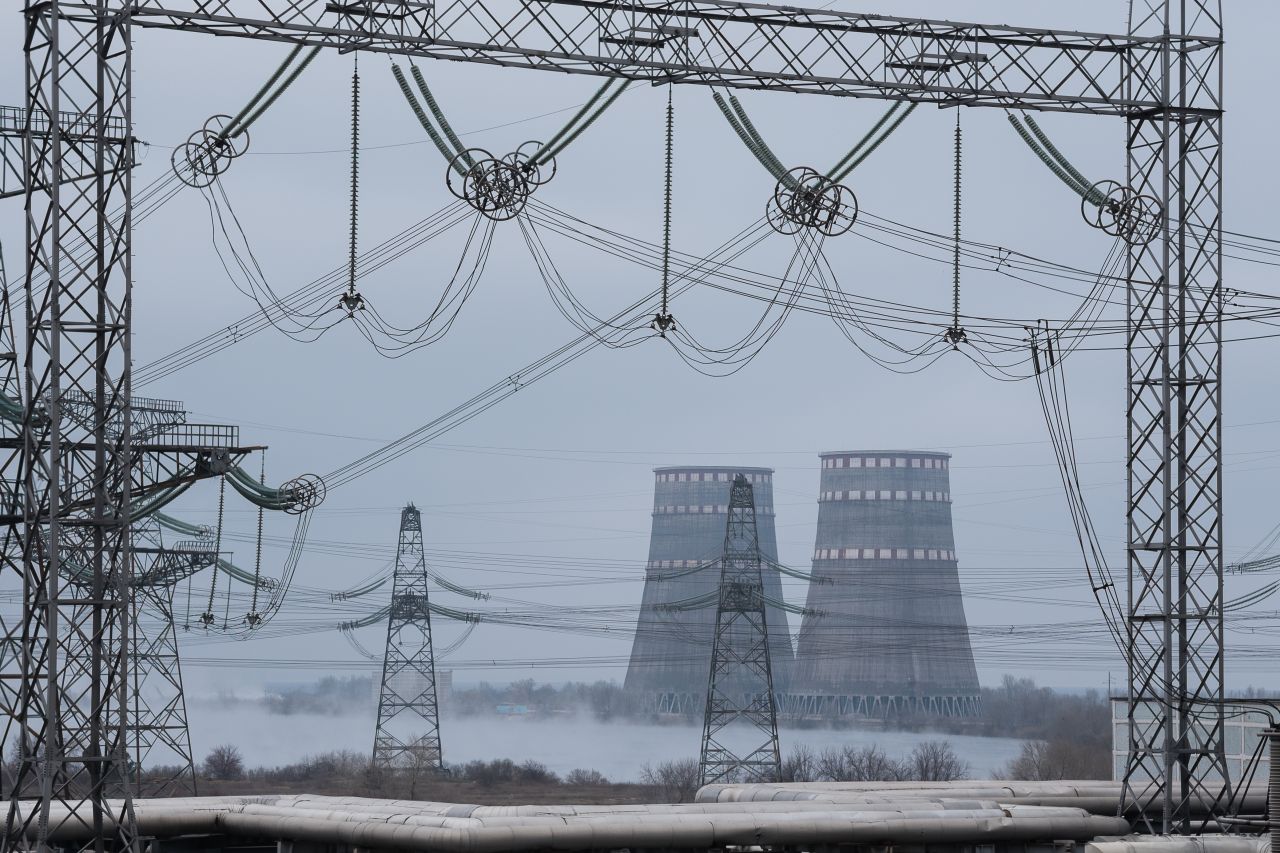
– What was the overall working climate like?
– Those who could not stand the pressure, of course, fled. However, my shift worked steadily; it was a well-coordinated team. Of course, we understood that there were those among our colleagues who remained silent, quietly waiting for “russian world.” And when the time came to decide, they would side with the enemy. It was depressing. But it did not affect the performance of our usual daily work.
– It is known that with each passing day, the invaders (the military, fsb agents, rosatom employees) increasingly interfered in the work of Zaporizhzhia power plant employees. How did this happen with regard to the operational personnel of the Main Control Room?
– Proposals for cooperation began to arrive. We were shown personalized contracts with salaries specified. Our own henchmen took rosatom employees to various rooms, such as security and electrical rooms, to which most operational personnel did not have access. From the outside, it looked like a tour – here we have this, and here we have that. However, they did not interfere with our work. At first, the russian guard soldiers even ate separately in the canteen, but over time, they became arrogant, showing that they were the “masters” here. For example, when the power lines came under fire, we had to coordinate with rosatom employees to turn them on and off again. It was humiliating.
– Were you personally pressured by the occupiers? What about your colleagues, friends, and acquaintances?
– When I think back to that period, it becomes clear that the russian invaders had a task – to sign contracts with as many ZNPP employees as possible. That is how these personalized contracts were created. Then they found managers who agreed to work for them. “Specialists” brought in from russia replaced those who refused. And this management team then had to work with the staff: persuading or coercing them. Phrases such as “we are for nuclear safety,” “war is politics, and we are outside of politics,” “the russians will give us all the necessary spare parts and equipment,” etc. were used.
Then, “conversations” in the operational department took place with the participation of fsb officers. Some were pressured, blackmailed, while others were gently persuaded and lured with high salaries, career growth, bonuses... And then, after all the manipulation, if you still don't sign the contract, one day you come to work and your access permit is blocked. That means you no longer have access to the ZNPP. After a while, the military and fsb officers came to the homes of such refusers, after which some agreed, while others held out and did not sign. The consequences were difficult to predict: some were not subjected to physical pressure, while others were taken to the basement or tortured right in their own apartments.
–What was the no-going-back line for you and your family? When did you realize that the decision to leave Enerhodar was irreversible?
– We did not take russian passports. And in the summer of 2023, “raids” began on the homes of Enerhodar residents, with the occupiers entering every apartment without exception. If people were not at home, they came back again. If there was no russian passport, they conducted a search. This was extremely dangerous because the slightest hint of sympathy for Ukraine could provoke accusations of terrorist activity. At that time, our friends told us that they had managed to flee and gave us detailed information about the route. The next day, we took our child, got in the car, and left. At the checkpoints, we said we were going to the sea. In the trunk, we had a beach umbrella and an inflatable mattress. Then we said we were going to visit friends abroad for a vacation. Finally, we fled.
– How did you feel when you left the temporarily occupied territory?
– It is hard to describe. Without exaggeration, it was the happiest day of my life. The most important. Considering the risks and numerous negative scenarios, I can say with confidence that we were very lucky.
– How did your life turn out?
– We travelled through Europe to Ukraine, arrived in Kyiv, and rented a place to live. I am still a ZNPP employee and maintain my qualifications at other NPP sites in Ukraine. My child is in school; my wife has found a job. However, we are constantly in a state of waiting – ready to return home at any moment after our house, town, and power plant are liberated.
– How do you see the future now – your future as a power professional, your family's future, the future of the power plant, and the town of Enerhodar? What are your hopes?
– We will definitely return to Enerhodar and restore the Zaporizhzhia NPP. Yes, it will not happen quickly. Yes, we have a difficult road ahead of us, but we will overcome it.
– What do you think needs to be done first after de-occupation to restore the full operation of the ZNPP?
– First and foremost, we need to bring back our people: those who left the country, those who stayed in Ukraine but may have changed professions, and those who waited for Ukraine's return to the temporarily occupied territory. All of our specialists who did not betray the country need to be brought back to the ZNPP. Next, we need to improve logistics – roads and rail connections. Then we need to restore the power lines and solve the problem with the cooling water. I repeat, I do not think this will happen with the wave of a magic wand. However, I know for sure that it is possible under one condition: the return of the ZNPP to the control of Ukraine, to its legitimate operator, NNEGC “Energoatom”.
– You probably have something to say to your colleagues, your shift, and the people of Enerhodar on the eve of Ukraine's Independence Day.
– A common wish for everyone: to bring victory closer every day through our actions and to help the Ukrainian Armed Forces.
I want to wish my colleagues not to lose faith. Our faith and our thoughts shape our environment, so it is of utmost importance not to give up and to believe, not to lose hope, not to despair. Our power plant needs us, and we need it. And we will definitely continue to work at our Zaporizhzhia NPP under the blue and yellow flag!
Enerhodar residents, fellow countrymen, Independence Day is a date that should once again unite us all around our country. Let us not look for enemies among ourselves, but direct all our anger and strength at the enemy, supporting our defenders with everything we can — donations, time, volunteer work. We must be worthy of the lives lost in the war and pass on a prosperous and independent Ukraine to our children and grandchildren.
